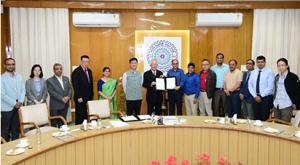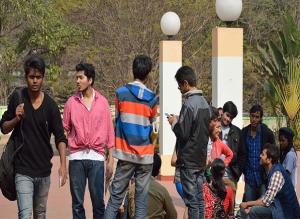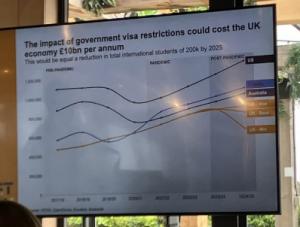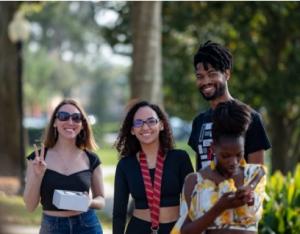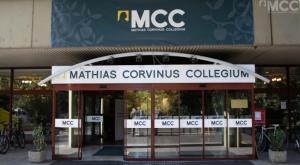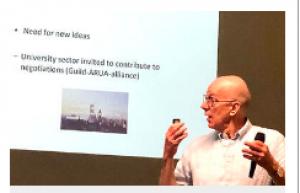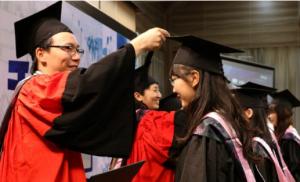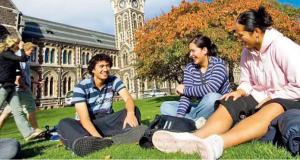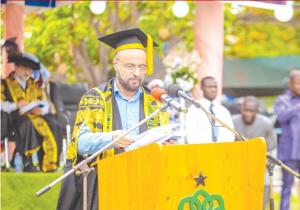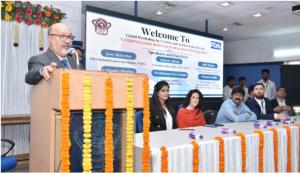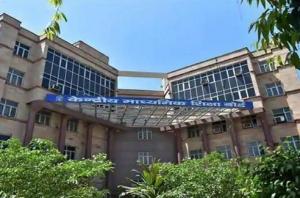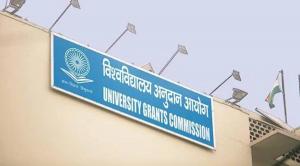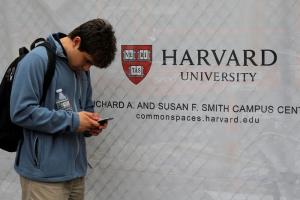The growth of international student numbers has been tremendous over recent years. According to an OECD report, there were 6.1 million international students in 2019.
While COVID-19 has slowed down the international student mobility movement due to border restrictions and lockdowns, a steady growth was recorded in 2021. For instance, in the United Kingdom, there were nearly 250,000 international students and in Australia there were nearly 360,000 international students studying in Australian universities.
Australia and the United Kingdom have been major countries in which international students, especially South Asian students, seek international education to not only experience life in another country but also to materialise their long-term intentions, such as gaining successful employment and permanent residency, or citizenship upon graduation in Australia.
So it is vital for universities to provide a meaningful, supportive and safe learning environment for international students to not only achieve their academic success but also strengthen their employability, which has a major impact on their employment and career outcomes.
However, South Asian students have faced barriers related to developing and enhancing their employability in Australia and the UK, something a recent study by myself and my colleagues investigated.
Barriers to employability
There are four key employability-related barriers and they are multi-level (micro, meso and macro) and multi-faceted.
At the micro level, South Asian postgraduate students studying in Australia and the UK have argued that academic success in terms of focusing on their studies and their course completion is more important than developing their employability in their host countries.
For South Asian students, it is important for them to gain qualifications due to their emphasis on academic culture itself, rather than building their employability. South Asian students have repeatedly said that they are unable to engage in employability-related activities outside of their programme of study because the adjustment process meant their full focus was required for success in their studies.
Parental pressure and cultural expectations to succeed while gaining overseas qualifications are of the utmost importance to South Asian students.
At the meso level, South Asian students face a lack of internship opportunities provided by host universities to enhance their work experience and develop their understanding of workplace culture. South Asian students in Australia have argued that opportunities are provided mainly to domestic students due to their residency status.
My latest study also echoed similar findings: local companies are providing more of their available opportunities to permanent residents or citizens.
Another meso-level-related barrier is that universities in the UK and Australia predominantly provide employability-related assistance to students via their career service activities that cater to a ‘one-size-fits-all’ model. For example, limited personalised advice has been provided when it comes to developing résumés, and career fairs or shows are mainly targeted at domestic students.
In the UK, international students choose UK universities to study at because they perceive that they will receive career support (82%) and enhance their employability skills (92%) via varied programmes. However, only 52% expressed satisfaction with the career support provided by their universities.
The standardised career services, such as generic résumé checking and interview skills, offered to students in Australia and the UK are insufficient for international students to build their employability, let alone achieve successful employment outcomes.
At the macro level, barriers relate to the perceptions of employers and government policies surrounding visa restrictions. International students have felt that their visa status and ethnic background affected employers’ hiring decisions. Of concern, some international students in Australia have reported perceived racism in not being given employment opportunities based on their ethnicity.
Multi-level implications
These findings have implications at all levels. At the micro level, international students need to be aware that, to gain successful employment on graduation, they need to obtain related work experience via internship opportunities and to engage with institutional career services as well as properly manage their study time.
Although they are disadvantaged due to barriers related to unequal access to employability-related programmes, international students can exercise their agency to seek work integrated learning opportunities through part-time or voluntary work.
At the meso level, universities’ practices, especially in the career office space, have to be re-designed to include career-related offerings to international students. As South Asian postgraduate students are keen to stay on and develop their careers in the UK and Australia, higher education institutions have a responsibility for, and should provide, culturally relevant careers services tailored to international students’ differing needs.
This includes educating employers on policies and rights to work for international students, targeted career counselling support for international students that addresses cultural differences that particularly relate to workplace environments and tailored support with transition into host countries for employment purposes.
In addition, university careers offices could also provide career development workshops for international students to help them understand their career goals, gaps and strategies to obtain successful employment outcomes.
At the macro level, policy-makers should clearly devise visa conditions for international students and graduates that address their work rights and they should inform employers of these changes.
It is important that these changes are acknowledged and implemented by employers as they will provide positive employment opportunities for South Asian international students and graduates, particularly as they have long-term intentions of living and working in Australia and the UK.
Dr Jasvir Kaur Nachatar Singh is an award-winning senior lecturer at the department of management and marketing, La Trobe Business School, La Trobe University, Australia. In 2020, Dr Singh received international teaching recognition from Advance HE in the UK as a fellow (FHEA). In 2018, Dr Singh received two La Trobe University Teaching Awards and the Best Presenter Award at the Global Higher Education Forum, Malaysia. Her research expertise is in higher education with a particular interest in exploring international students’ lived experiences of academic success, employability, career aspirations and learning experiences. Dr Singh also explores lived experiences of skilled migrants and international academics. She has published numerous articles in high impact journals and has presented at various national and international higher education conferences. In 2021, Dr Singh was appointed as a research fellow at the Malaysian National Higher Education Research Institute.

Source link: https://www.universityworldnews.com/post.php?story=20230523135802421
















